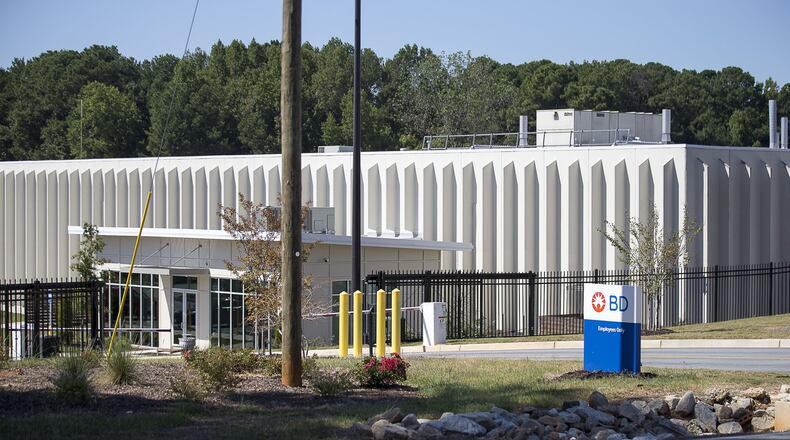When it comes to necessary government action, achieving results is often neither a fast nor simple process.
That realization makes it all the more noteworthy that the state of Georgia achieved in just seven days a pretty comprehensive, yet simple-to-understand legal agreement that should better safeguard people living and working near a plant that uses a carcinogen to sterilize medical instruments.
The speedy achievement of a consent order between the Georgia Environmental Protection Division and Becton Dickinson is a sound example of how government should work quickly and assertively to protect what is perhaps Georgians’ most-vital interest – their health.
The company involved here, better known by its initials BD, operates facilities in Newton County and in Madison that use the chemical ethylene oxide to sterilize medical gear. The use of this process has come under intense, sustained public attention and criticism since news reports on it first appeared earlier this year.
The initial news reporting by WebMD and Georgia Health News detailed a seemingly routine bureaucratic process that nevertheless had significant potential implications and insights for public health.
In 2016, the U.S. Environmental Protection Agency reclassified ethylene oxide as a known carcinogen. A year later, the EPA released preliminary results of what’s called a National Air Toxics Assessment (NATA) to state environmental regulators. Potential “hot spots” of interest were pointed out to Georgia officials. In 2018, the EPA released its NATA report, noting areas near two ethylene oxide-using facilities had potential for higher cancer risks. Georgia EPD didn’t publicize the matter until reporters published news of the findings.
The results were predictable, with people living or working near the various facilities worrying – and not without some justification – about emissions of ethylene oxide. Inadvertent releases of the substance at some plants caused worry. And the accuracy of self-reporting to EPD of those mishaps or even routine emissions raised questions that seemed reasonable too.
Early on, as The Atlanta Journal-Constitution has reported on its news pages and also editorialized here, EPD seemed behind the curve in monitoring and acting appropriately on the issue. Their record compared unfavorably with the quick, assertive actions undertaken by other states with ethylene oxide-using plants.
With public pressure and the power of news reporting showing no sign of relenting, state officials changed course. Gov. Brian Kemp undertook moves to change matters for the better.
And, on Oct. 21, Georgia Attorney General Chris Carr filed court papers in Newton County, seeking to force a temporary shutdown of BD’s sterilization operations in Covington, alleging violations of Georgia’s Clean Air Act.
While BD aggressively contended that it was in compliance with applicable laws and operating safely, the company and the state did agree last Monday to a consent order that sets new parameters for operation and spells out specific improvements needed and the timeframe for achieving them.
That is a commendable, worthwhile development, and one achieved in only one week’s time. The 9-page document relies substantially on commonsense legal reasoning and a plain-English recitation of the plan agreed to by EPD and BD. It avoids placing blame and instead concentrates on a plan for improvement. That likely saved on legal costs and helped speed things along.
BD agreed to voluntary cease all sterilization activity at Covington from October 30 to November 7. The consent order also requires that any unpermitted release of ethylene oxide, no matter how small, from the Covington or Madison plants be reported immediately to EPD. Required too are follow-up reports within 48 hours, detailing the problem and steps taken to contain it.
After the Covington facility resumes operations, BD agreed to reduce so-called “fugitive” emissions of ethylene oxide by taking specific steps, including reducing the amount of products sterilized there for a time.
The agreement also details the process and timeline required for installing and operating emissions control upgrades at the plant, as well as the timetable for applying for EPD permits for air quality control processes at both plants.
The consent order seems a reasonable, comprehensive resolution that should help keep Georgians safe while allowing BD to continue providing a necessary service for the health care industry.
That seems a worthwhile balance to strike for both Georgia’s people and its economy.
Andre Jackson, for the Editorial Board.
About the Author
Keep Reading
The Latest
Featured



